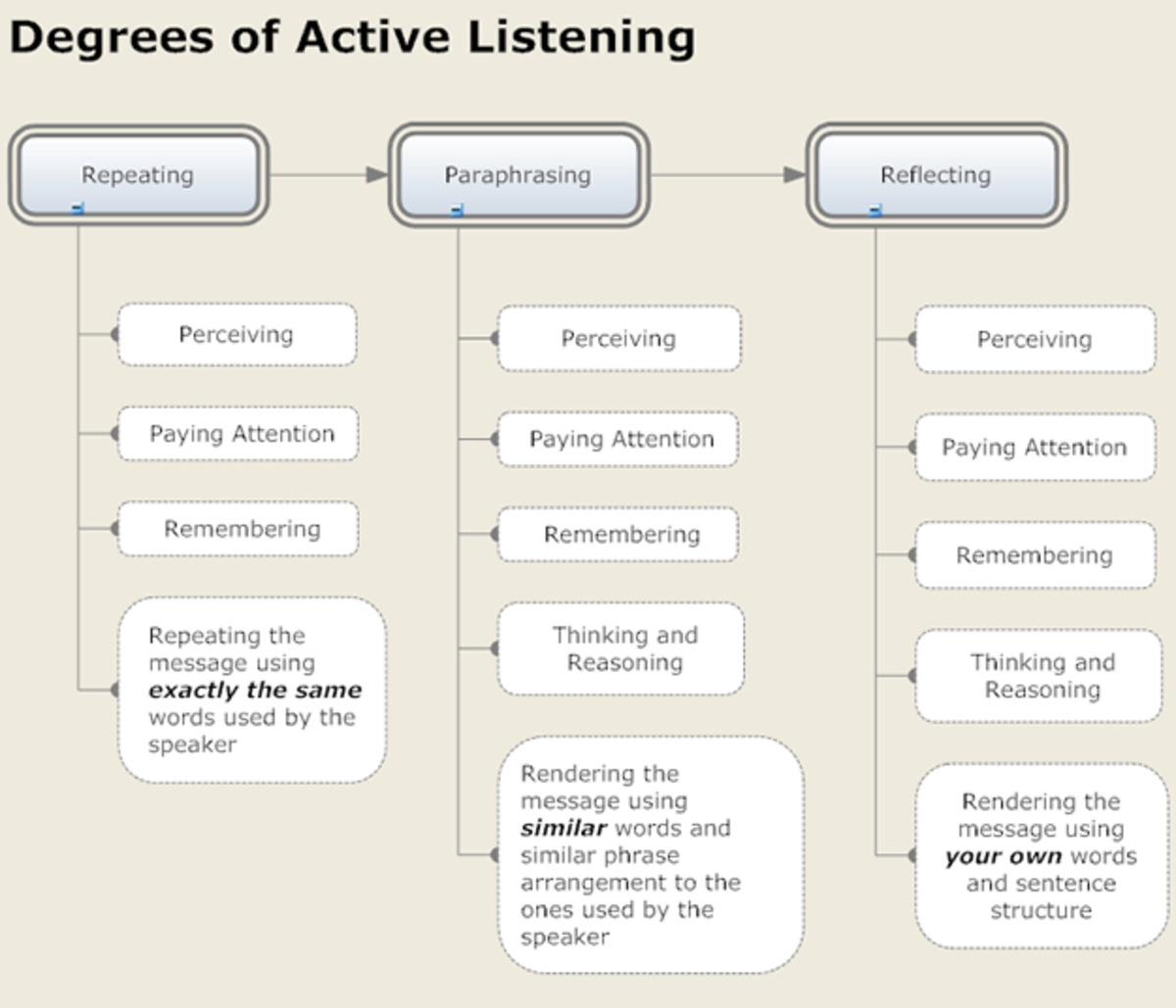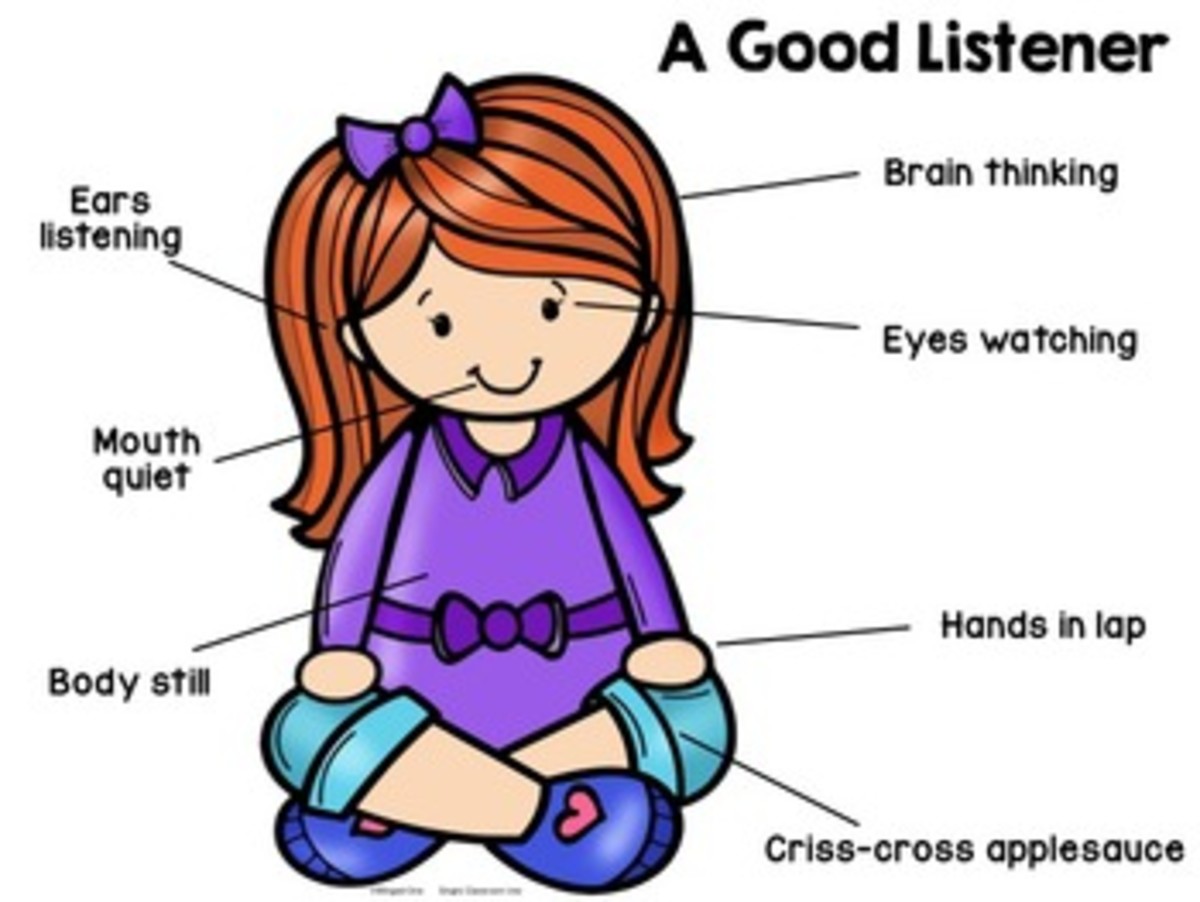Business Words for Winning, Part II

Listen for Winning Words
In Part I of Words for Winning, we discussed the annoying words and phrases that are creeping into our conversations daily. The worst part is that it is being accepted as okay in the business world. Even top CEOs and heads of corporations are using the language of the lazy when communicating to the press, when holding stockholder meetings, and when giving a state-of-the-business to employees. Yes, it is a sad affair, but we still keep on trucking. Those of us offended by the degree in which the English language is being bombarded by the use of words that fit like an oversized wet sweater, simply have to wait it out until people begin noticing the negative effects it has on business.
On the positive side, once a business leader recognizes the misuse of words and the silliness of participating in made-up words, he or she wants to be better at business conversations, giving speeches, and communicating to team members. One of the best ways to be a better speaker or conversationalist is to become a better listener. That’s right. Learning how to listen actually makes you better at speaking.
Listening is difficult in business settings because if you are like most business leaders, you are always thinking about your next move. You are like a master chess player constructing the game in your head and planning out ten moves in the future. Unfortunately, since we are like that, we are also planning what we are going to say next when the person we are talking to finishes his or her thought or even when they take a breath to continue on. We have to get our words and thoughts communicated or it will destroy us inside.
We believe we are listening, but we are actually only partially listening. Dr. Rick Bommelje, in his book, Listening Leaders: The Ten Golden Rules to Listen, Lead, and Succeed , states that we cannot do those two things at one time. We cannot be forming our next thought to say and listen to the other person effectively. We have to wait and really listen to what the other person is saying. When we can learn to do that, we begin to get better at what we then might say. In other words, pausing and taking in what the person is saying, and really thinking about their words, actually allows you to form a more polished statement, concern, rebuttal, etc.
I’ve found that if too many tips or how-tos, are given all at once, most people won’t apply any of them. That is why I am going to only give one tip this time and add more in later parts of this series. This specific tip is something that every business leader can begin applying immediately. Every time you are in conversation with a client, vendor, employee, or family member, and they are speaking, repeat every word they say. Sounds hokey and they will probably stop speaking and either punch you for mocking them or call a doctor for you. That is why you are going to repeat every word they say in your mind. Don’t move your lips, but let the mouth of your mind repeat every single word.
It will go something like this: Other person: “My dog stepped on some turtle eggs.” That is how a bystander will hear the other person, but in your mind it will go like this: “My (my) dog (dog) stepped (stepped) on (on) some (some) turtle (turtle) eggs (eggs)” Do you get the point? You are so busy repeating every word that the other person is saying that there is no room in your mind to be forming your next statement. You are not just listening; you are really listening.
Try this tip with every person that speaks to you. This does two wonderful things. First, it allows you to actually understand what the other person is trying to say. In fact, you are listening so much more clearly now since you are not thinking about what you will say that you will now catch things you might not understand and therefore ask pertinent questions. Your questions show the other person that you care about what they are trying to say.
The second thing that repeating in your mind what the other person is saying does is that it causes you to lean into the space of the person speaking. It won’t be in an uncomfortable way, but just enough to be able to clearly repeat in your mind the words he or she is using. This slight leaning in sends a signal to the person speaking that you are truly listening and hanging on every word.
Give it a shot. It is such a powerful, yet effective communication tool. You’ll find that it helps you to carefully select the right phrases and words--- the right words for winning.
More Communication Tools Here
Dr. Rick Bommelje: Listening Coach
- Dr. Rick - Listen-Coach | Business Coaching for Your Leadership Team
Dr. Rick Bommelje is an internationally recognized expert in listening and leadership. Dr. Rick will take you or your management team to the next level of effective communication.









